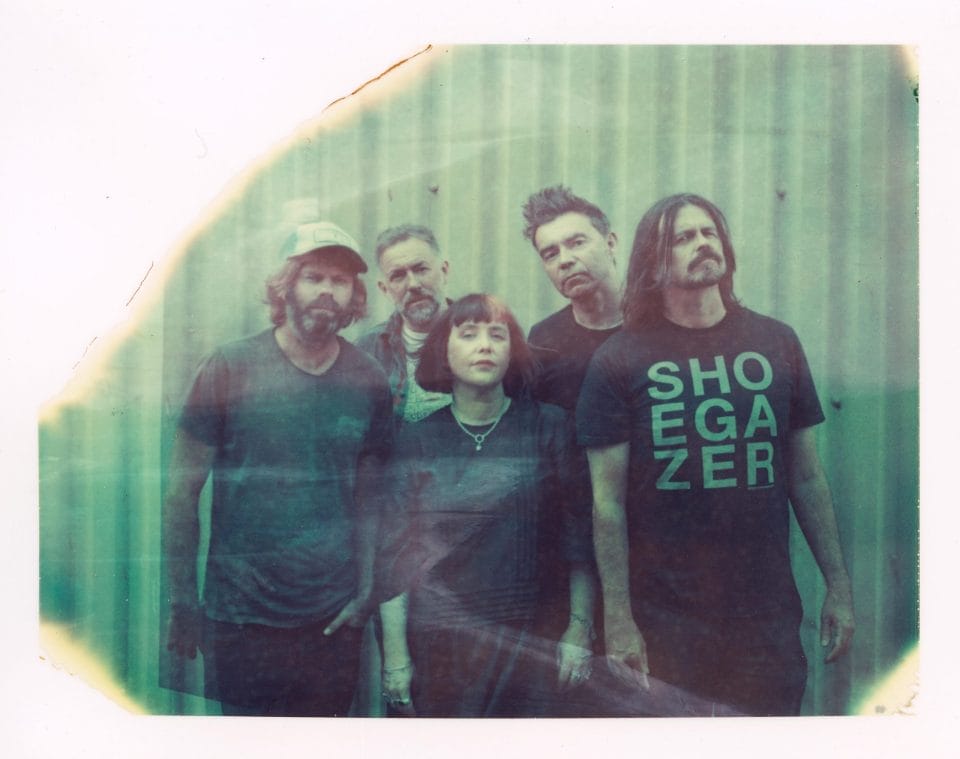 Despite all the contradictions and opposing forces up against the survival of Slowdive, the shoegaze pioneers have reunited a little more comfortable in their skin, a little surer in their voice, lifting their chins up a little higher to look into the bright-eyed, blissed-out audience that stand beyond their feet.
Despite all the contradictions and opposing forces up against the survival of Slowdive, the shoegaze pioneers have reunited a little more comfortable in their skin, a little surer in their voice, lifting their chins up a little higher to look into the bright-eyed, blissed-out audience that stand beyond their feet.
For artists, spending a sizeable portion of their life to create works may or may not guarantee an audience that resonates with that leap of faith. But the power of the Internet (or these days, TikTok) means that just being online can work up a renaissance, some love-calling to artists who were probably doing a less-artistic life just fine without fully realising the dreams of their youth — or so they thought.
Slowdive, a pioneer of the once-sub-genre world of shoegaze, is one of these artists who have — in the midst of what front woman Rachel Goswell describes as “kinda bumbling along” life — found themselves connecting with Gen Zs thanks to social media — today’s youth re-discovering the enigmatic rapture of Slowdive’s sound, the iconic lyric, “it matters where you are” from the song “When The Sun Hits”, permeating the collective consciousness of this demographic.
 The English band, formed in 1989, wrapped up its Asia Tour in Singapore last month in an extended celebration of the release of their fifth album “everything is alive”. They have never been more alive in music than now, for they were once prophesied to fail by music critics in the 1990s, only to rise from the ashes of a 22-year ‘life hiatus’ with their 2017 self-titled album “slowdive”; instantly picking up where they left off with their debut album, “Souvlaki”, to everyone’s surprise.
The English band, formed in 1989, wrapped up its Asia Tour in Singapore last month in an extended celebration of the release of their fifth album “everything is alive”. They have never been more alive in music than now, for they were once prophesied to fail by music critics in the 1990s, only to rise from the ashes of a 22-year ‘life hiatus’ with their 2017 self-titled album “slowdive”; instantly picking up where they left off with their debut album, “Souvlaki”, to everyone’s surprise.
“I remember our manager said they were gonna book us a show in London for a 900-strong audience, and we were like, that sounds like too many,” said guitarist Christian Savill. “Shortly after Primavera — it was our third show back — we had gone from playing in little rehearsal rooms to 20, 30 thousands. We’ve never played to that amount of people before, so we definitely have (had) many imposter syndrome moments.”
 Rachel’s pretty sure she’s had imposter syndrome all her life though. “I’ve come to a conclusion that that’s just a part of being alive. Everybody has imposter syndrome at some point in their lives. But Primavera was when the penny dropped. When our backdrop went down on stage and the audience was cheering before we went on, that was when we realised people were really excited; before we couldn’t really comprehend it properly,” she said.
Rachel’s pretty sure she’s had imposter syndrome all her life though. “I’ve come to a conclusion that that’s just a part of being alive. Everybody has imposter syndrome at some point in their lives. But Primavera was when the penny dropped. When our backdrop went down on stage and the audience was cheering before we went on, that was when we realised people were really excited; before we couldn’t really comprehend it properly,” she said.
Today, they are performing to a still-growing audience that spans everyone from “Souvlaki” day-ones, fans initiated since 2017, to even younger fans who are only slightly older than their own children — the phenomenal expansion (and diversification) of their fan base no one-off accident.
“I love doing our live shows and seeing so many young people because it gives me hope for humanity, to be honest. It feels like our youth is being reflected back at us, and that is really a lovely thing. It’s full circle — we didn’t imagine that that’s how this new record would be received when we came back on tour,” said Rachel.
While they’ve taken this resurgent wave in their stride, they are quick to let nature take its course.
“I don’t know much about youth culture apart from seeing it in my daughter who’s nearly 18,” shares Christian. “We’re aware of Tiktok and all that kinda stuff but we’ve kinda decided to just leave it at that, because that’s not our world to understand. Just let the kids have their party and we’ll play along — if we try to get involved in there it’s gonna be embarrassing.”
 The intrigue, however, goes beyond quotable, bliss-out lyrics. Shoegaze, with its simultaneously abstract yet strangely resonant hum, is underpinned by the universal experience of youth, maintaining the quality of what some have described as ‘the feeling of a shared secret’. It just so happens that Slowdive’s secrets don’t take the form of just words, and the band has kept authentic to this approach of craftsmanship — a process of joy-seeking — to find themselves singing through a succession of youths for the past 35 years.
The intrigue, however, goes beyond quotable, bliss-out lyrics. Shoegaze, with its simultaneously abstract yet strangely resonant hum, is underpinned by the universal experience of youth, maintaining the quality of what some have described as ‘the feeling of a shared secret’. It just so happens that Slowdive’s secrets don’t take the form of just words, and the band has kept authentic to this approach of craftsmanship — a process of joy-seeking — to find themselves singing through a succession of youths for the past 35 years.
“There’s never a plan,” shares Christian. “When we’re doing the record, we’re more like “are we excited about making it?” We’re not thinking about what we want to say. It’s only when we finish a record that we think about what other people are going to think of it.”
“So I only thought to myself ‘holy shit we’re actually good’ after I listened to our first recording together for the first time. And then we started turning up in cities thousands of miles away saying, surely no one’s ever heard of us here, but then we start playing and the crowd would always be there. It was good fun and just a laugh then,” he said, also, with a laugh.
“I was an idiot then and I’m an idiot now.”
This happy-go-lucky attitude was slower to come for Rachel, who just wishes she was a little kinder to her younger herself and cared less about what people thought. “Although it kinda didn’t feel like that earlier on, there’s a huge difference between being an 18 year old to a 25 year old, 30 year old, 40 and 50 year old,” she said. “Where I am now is probably the most comfortable I’ve ever been in myself, in my body, because I just take things as they come and try not to worry too much.”
So even though Rachel and Christian have left their salad days far behind, their swelling hymns continue to strike the teenage heart strings of multiple generations — amplified either by the pandemic or self-imposed bedroom quarantines — while slowly healing their inner children in the process. What they’ve always loved was music, and in wandering the ends of the Earth for it — got lost, found their way again, all by leaning into life’s metronome — they found trust in time, and all the highs and lows that it comes with, to yield not just an intact, but stronger spread of Slowdive’s iridescent, sonic magic.
Story Charmaine Tan
Interview Cheryl Ong
Once you are done with this story, click here to catch up with our April 2024 issue.







